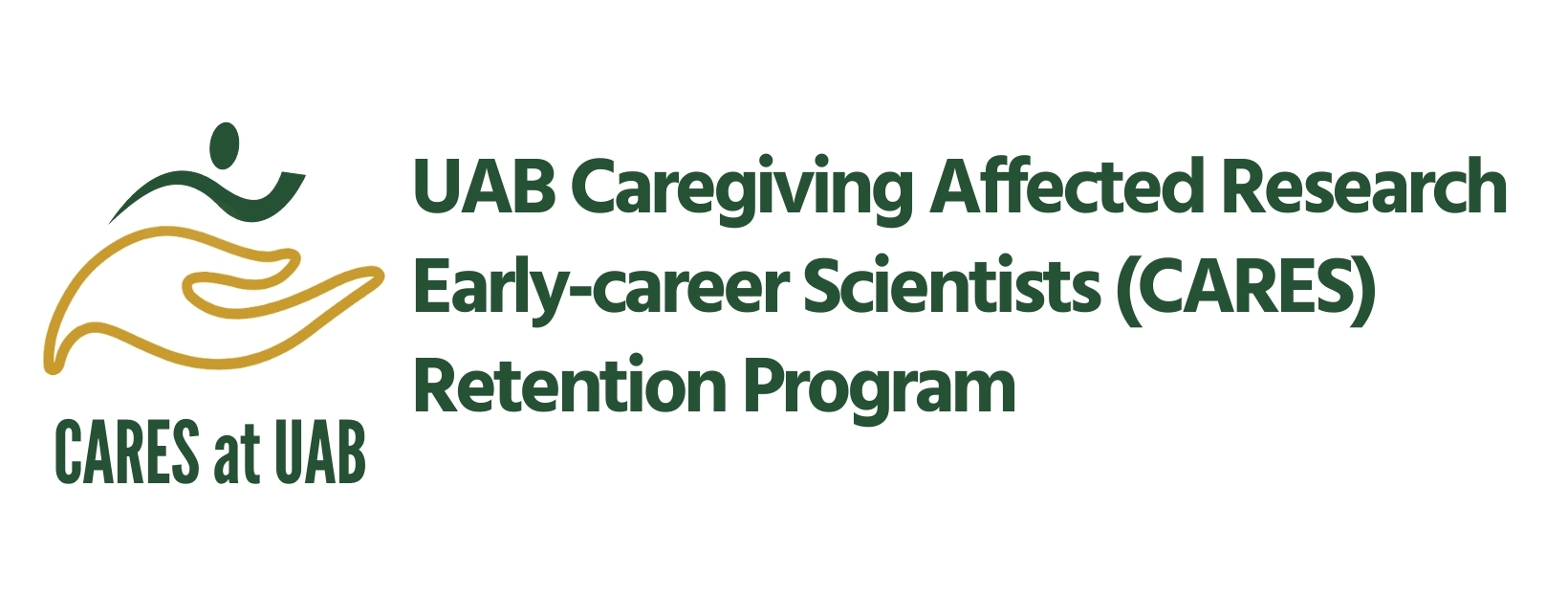
-
About
Built on the promising outcomes of the Doris Duke Charitable Foundation’s Fund to Retain Clinical Scientists, DDCF and its funding partners –the American Heart Association, the Burroughs Wellcome Fund, John Templeton Foundation, Rita Allen Foundation and Walden Foundation – have come together to provide COVID-19 Fund to Retain Clinical Scientists grants for U.S. medical schools that are evolving to strengthen policies, practices, and processes to support the research productivity and retention of early-career faculty with family caregiving responsibilities.
As part of the program, the UAB COVID-19 Caregiving Affected Early-career Research Scientists (CARES) Retention Program will support funded investigators whose research has been deleteriously impacted by the pandemic with 'extra hands' grants to augment their academic scholarship. For information about specific funding cycles, please see the APPLY tab of this website. -
Team
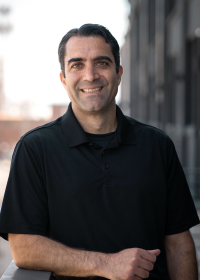
Michael J. Mugavero, MD, MHSc
CARES Program DirectorDr. Mugavero is Professor of Medicine in Infectious Diseases, Director of the UAB Center for Outcomes and Effectiveness Research and Education (COERE), and Co-Director of the Center for Clinical and Translational Science (CCTS), where he Co-leads the Training Academy. He spearheaded the DRIVEN Program (Driving Research: an Interdisciplinary, Vibrant, Engaged, Network), supporting the research careers of persons under-represented in science. He is currently primary mentor to three NIH K23 awardees, has directly supported four SOM physician-scientists early career faculty in transitions to R01 awards, all women with caregiving responsibilities, and is PI of a T32 health services research training grant from AHRQ. Dr. Mugavero leads program administration, oversees the budget and resources management, and guides the program implementation and evaluation units.
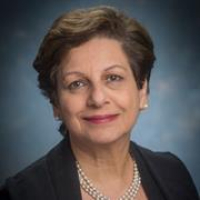
Mona N. Fouad, MD, MPH
CARES Program Co-DirectorDr. Fouad is Professor and Director of the Division of Preventive Medicine, Senior Associate Dean for Diversity and Inclusion in the UAB Heersink School of Medicine, Founding Director of the Minority Health & Health Disparities Research Center (MHRC), and the Edward E. Partridge, M.D., Endowed Chair for Cancer Disparity Research. A member of the National Academy of Medicine and a prominent leader in promoting diversity and justice in medical education, Dr. Fouad has been a driving force in the UAB Heersink School of Medicine in implementing policies and programs promoting equity. She co-leads the administrative unit and provides a direct line of communication to Dean Vickers and other UAB Heersink School of Medicine Senior Associate Deans.
Dr. Mona Fouad is Professor of Medicine, Director of the Division of Preventive Medicine, Edward E. Partridge, M.D. Endowed Chair for Cancer Disparity Research, and Senior Associate Dean for Diversity and Inclusion in the Heersink School of Medicine at the University of Alabama at Birmingham. Dr. Fouad is recognized nationally as a leader in health disparities research and served as a member of the National Institutes of Health National Advisory Council on Minority Health and Health Disparities from 2008-2012. In 2017, Dr. Fouad was elected a member of the National Academy of Medicine. She was selected as the UAB 2018 Distinguished Faculty Lecturer for advancing the frontiers of science and outstanding contributions to education, research and public service. Dr. Fouad obtained her MD from Alexandria University School of Medicine in Alexandria, Egypt, and her MPH from the University of Alabama at Birmingham School of Public Health. Dr. Fouad’s career at UAB began in 1991 and has focused on the health of minority and underserved populations, including efforts to increase involvement of special and underrepresented populations in research. She has played a prominent leadership role, both regionally and nationally, in promoting diversity in medical education. Dr. Fouad has led in the efforts to promote minority students, researchers, and leaders through joint programs with Historically Black Colleges and Universities (HBCUs) and other minority-serving academic institutions. She serves as PI of the NIA-funded UAB Research in Aging through Mentorship and Practice – Undergraduate Program (UAB RAMP-UP), whose goal is to reduce health disparities in aging through the strengthening of the MSTEM pipeline, and as PI of the NIDDK-funded UAB STEP-UP: Promoting Diversity through Mentored Research Experiences, whose goal is to enhance the diversity of the nation’s research workforce by providing mentored research training to promising undergraduate students from diverse backgrounds underrepresented in biomedical, clinical and behavioral research.
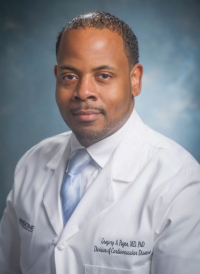
Gregory Payne, MD, PhD
CARES Program ImplementationDr. Payne is a physician-scientist and has served as a DRIVEN Co-Director for 2 years. As an Assistant Professor in Cardiology in the UAB Heersink School of Medicine, Dr. Payne studies novel inflammatory pathways in cardiovascular disease. Dr. Payne’s research has been nationally recognized, and he is an inaugural recipient of the American Heart Association-Harold Amos Medical Faculty Development Program Career Development Award. As Associate Director of the NIH-Funded Medical Scientist Training Program (MSTP) and member of the Physician Scientist Development Office (PSDO) at UAB, Dr. Payne will build upon his leadership of the DRIVEN Micro-grant program to co-lead program implementation of UAB COVID-19 CARES.
As a physician-scientist, Dr. Payne’s career has been defined by his determination to understand the early mechanisms of vascular disease that ultimately lead to cardiovascular deaths. As a trainee of both Medical Scientist and Physician Scientist Training Programs, he has gained unique translational scientific skills to investigate vascular and cellular biology. As an academic cardiologist at the University of Alabama at Birmingham (UAB), Dr. Payne cares for patients with a variety of cardiovascular diseases. Furthermore, he leads a translational research program investigating novel inflammatory pathways that contribute to cardiovascular and cardiopulmonary diseases. Specifically, his team aims to understand how fragmentation of the extracellular matrix contributes to cardiovascular inflammation and vascular endothelial dysfunction. Since 2019, Dr. Payne has helped co-direct the Translational Research Program for Complex Cardiopulmonary Diseases at UAB. Dr. Payne is also responsible for developing the next generation of physician-scientists as the Associate Director of the UAB NIH-funded Medical Scientist Training Program (MSTP). Through the AHA, Dr. Payne has been involved with career development as a member of the ATVB Early Career Committee. He has also championed the need for diversity in research through his involvement with the AHA-sponsored Harold Amos Medical Faculty Development (AHA/AMFDP) and Supporting Undergraduate Research Experience (SURE) programs.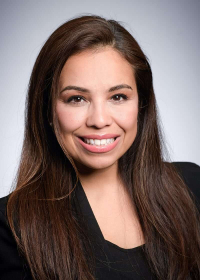
Bertha Hidalgo, PhD
CARES Program ImplementationDr. Hidalgo is a genetic epidemiologist and has served as a DRIVEN Co-Director for 2 years. She is an Associate Professor in the Department of Epidemiology and Faculty Scholar in the Center for the Study of Community Health. Her research focuses on health disparities related to cardiometabolic diseases, with a special focus on Latinx populations and epigenomics. She has received research funding from the Robert Wood Johnson Foundation, American Heart Association, and the NIH. She will co-lead program implementation with Dr. Payne in coordinating the solicitation, review process, and selection of “extra hands” awardees.
Dr. Bertha Hidalgo an Associate Professor with tenure in the Department of Epidemiology. She holds degrees from Stanford University, the University of Southern California and the University of Alabama at Birmingham. Her research focuses health disparities related to COVID-19, cardiometabolic diseases, with a special focus on Latino populations and genomics. Dr. Hidalgo has a highly productive record of peer-reviewed research in relevant research areas with publications as lead or co-lead author in high-impact journals including Nature Scientific Reports, Diabetes, American Journal of Public Health, with 65 publications in total as lead, co-author or senior author. She is in her sixth year on the faculty at UAB and has attained research funding from the Robert Wood Johnson Foundation, NIH, the American Heart Association, and internal funding from UAB. Dr. Hidalgo is the past chair of the Minority Affairs committee and currently on the Board of Directors for the American College of Epidemiology, as well as a member on the NHLBI Board of External Experts. Dr. Hidalgo is also recipient of the 2019 Robert Wood Johnson Foundation Early Career Achievement Award. Most recently, Dr. Hidalgo was awarded funding for the American Heart Association Institute for Cardiovascular Precision Medicine grant opportunity to increase prevention of cardiovascular and cerebrovascular disease in millennial women within underrepresented ethnic and racial groups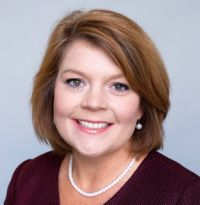 Rebecca A. Reamey, PhD, MA
Rebecca A. Reamey, PhD, MA
CARES Program Evaluation
Dr. Becky Reamey has over 18 years of experience in curriculum design, program management, and teaching. She has a background in higher education student development with an emphasis in professional and workforce development. Her post-doctoral work was done at the University of Alabama in the Division of Community Affairs, Center for Community-Based Partnerships. In her current role, Dr. Reamey has developed the LEAD leadership development program and the Grant Writing Intensive (GRIT) cohort program. Her vision for the first Translational Training Symposium brought together over 85 investigators from across the CCTS Partner Network to train, network, and collaborate. She has developed curriculum and learning outcomes for the three of the regularly scheduled seminar training series offered by CCTS. She regularly speaks to groups about networking, presentation skills, team dynamics, and preparing grants. As Deputy Director of COERE, Dr. Reamey is excited to work with many researchers across UAB for training, education, and learning health system.
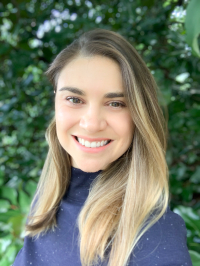
Katherine Meese, PhD
CARES Program EvaluationDr. Meese is an Assistant Professor and Program Director in UAB’s Department of Health Services Administration and Director of Wellness Research within UAB Medicine Office of Wellness. She also leads the National Center for Health Care Leadership Well-Being initiative as the inaugural Chair of the Well-Being Council. During the pandemic, she led UAB Medicine’s evaluation of employee well-being to identify specific needs for various employee sub-groups through an all-employee survey. This data was used to inform university-wide resources and policies, including increased childcare resources. Dr. Meese will co-lead program evaluation.
Katherine A. Meese, Ph.D is an Assistant Professor in the Department of Health Services Administration at the University of Alabama at Birmingham. She also serves as the Director of Wellness Research in the UAB Medicine Office of Wellness, Director for the Center for Healthcare Management and Leadership, and Program Director for the Graduate Certificate in Healthcare Leadership. She earned her Ph.D in Health Services Administration with a specialization in strategic management from the University of Alabama at Birmingham and joined the faculty in 2020. Dr. Meese has several years of industry experience which encompassed work in ten countries on four continents, including management within a large academic medical center. She has co-authored two textbooks for organizational behavior in health care with Dr. Nancy Borkowski that are used in healthcare management programs across the country. Her research has been published in Anesthesia & Analgesia, Health Services Management Research, Journal of Health Administration Education, Health Care Management Review, and various other journals. Her research interests are in organizational behavior, leadership, well-being, and delivery models that enhance organizational learning. -
CARES at UAB Awardees
Round 3
The third and final round of CARES at UAB was sponsored by the Heersink School of Medicine.
During this round, CARES at UAB made 4 awards of $50,000 each to investigators who have encountered significant challenges to their research progress and productivity due to caregiving responsibilities caused by the pandemic. "Extra hands" awards are intended to support additional personnel not directly funded by existing research grants as a means to augment and accelerate the conduct of projects to increase peer review scholarship and submission of extramural grant awards. The overarching goal of CARES at UAB is to support the retention of scientists with caregiving responsibilities in academic research positions while raising institutional awareness, programs and fostering a culture that recognizes and supports research faculty who are caregivers.
All 4 awardees are non-physician scientists from the Heersink School of Medicine from Microbiology, Preventive Medicine, and Psychiatry.
-
Awardees from Heersink School of Medicine

Lori Bateman, PhD
Assistant Professor
School of Medicine
Division of Preventive Medicine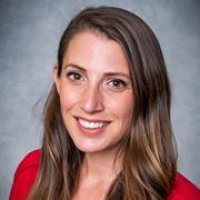
Caitlin Clevenger, PhD
Assistant Professor
School of Medicine
Department of Psychiatry and Behavioral Neurobiology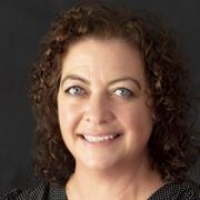
Carrie Howell, PhD
Assistant Professor
School of Medicine
Division of Preventive Medicine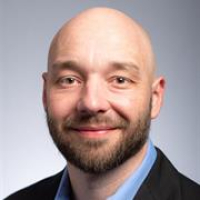
Eric Ubil, PhD
Assistant Professor
School of Medicine
Division of Microbiology
Round 2
The second round of CARES at UAB was sponsored by the Doris Duke Charitable Foundation, Heersink School of Medicine, Center for Clinical and Translational Science, UAB Department of Pediatrics, UAB School of Health Professions, UAB School of Nursing, and UAB School of Public Health.
In the second round of funding, CARES at UAB made 17 awards, up to $50,000, to investigators who have encountered significant challenges to their research progress and productivity due to caregiving responsibilities caused by the pandemic. "Extra hands" awards are intended to support additional personnel not directly funded by existing research grants as a means to augment and accelerate the conduct of projects to increase peer review scholarship and submission of extramural grant awards. The overarching goal of CARES at UAB is to support the retention of scientists with caregiving responsibilities in academic research positions while raising institutional awareness, programs and fostering a culture that recognizes and supports research faculty who are caregivers.
-
Awardees from Heersink School of Medicine
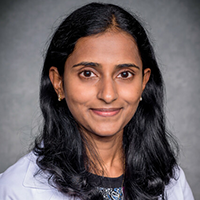
Radhika Gangaraju, MBBS
Assistant Professor
Department of Medicine
Division of Hematology and Oncology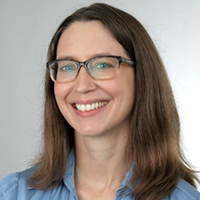
Jennifer Guimbellot, MD, PhD
Associate Professor
Department of Pediatrics
Division of Pulmonary and Sleep Medicine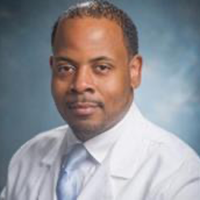
Gregory Payne, MD, PhD
Assistant Professor
Department of Medicine
Division of Cardiovascular Disease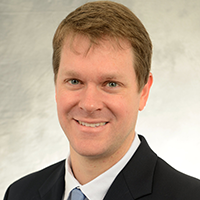
Robert Richter, MD
Assistant Professor
Department of Pediatrics
Division of Critical Care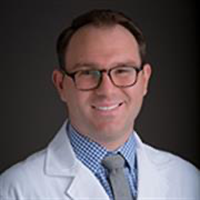
John "Bart" Rose, MD
Assistant Professor
Department of Surgery
General Surgery Oncology Section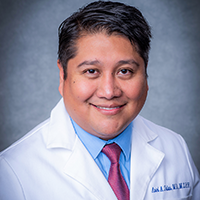
Ariel Salas, MD
Associate Professor
Department of Pediatrics
Division of Neonatology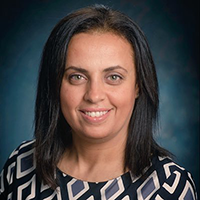
Noha Sharafeldin, MBBCH, PhD
Assistant Professor
Department of Medicine
Division of Hematology and Oncology -
Awardees from UAB School of Health Professions
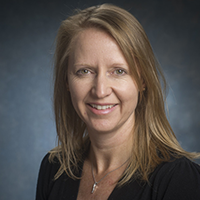
Paula Chandler-Laney, PhD
Associate Professor
Department of Nutrition Sciences
Mamie Coats, PhD
Associate Professor
Department of Clinical and Diagnostic Sciences
Jie Gao, PhD
Assistant Professor
Department of Clinical and Diagnostic Sciences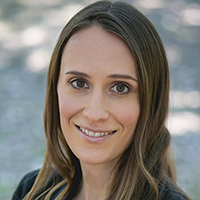
Courtney Peterson, PhD
Associate Professor
Department of Nutrition Sciences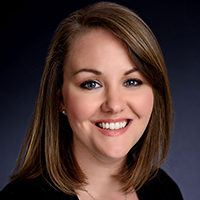
Brooks Wingo, PhD
Associate Professor
Department of Occupational Therapy -
Awardees from UAB School of Nursing

Deborah Ejem, PhD
Assistant Professor
Department of Nursing Acute Chronic and Continuing Care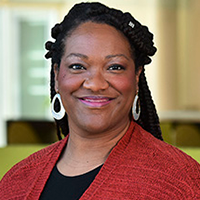
Shena Gazaway, PhD
Assistant Professor
Department of Nursing Family, Community and Health Systems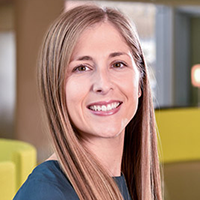
Pariya Wheeler, PhD
Assistant Professor
Department of Nursing Family, Community and Health Systems -
Awardees from UAB School of Public Health
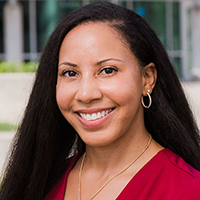
Shakia Hardy, PhD
Assistant Professor
School of Public Health
Department of Epidemiology
Division of Infectious Diseases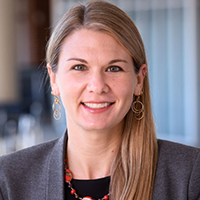
Katia Bruxvoort, PhD
Assistant Professor
School of Public Health
Department of Epidemiology
Division of Infectious Diseases
Round 1
The first round of CARES at UAB was sponsored by the Doris Duke Charitable Foundation and Heersink School of Medicine. In the first round of funding, CARES at UAB made 7 awards to funded researchers for one year. These “extra hands” awards provide up to $50,000 to early-career physician-scientists who have encountered significant challenges to their research progress and productivity due to caregiving responsibilities caused by the pandemic. Awards are intended to support additional personnel, not directly funded by existing research grants, as a means to augment and accelerate the conduct of projects to increase peer review scholarship and submission of extramural grant awards. The overarching goal of CARES at UAB is to support the retention of early-career physician-scientists with caregiving responsibilities in academic research positions while raising institutional awareness, programs, and fostering a culture that recognizes and supports research faculty who are caregivers.
Awardees include physician-scientists from the Department of Medicine Divisions of Infectious Diseases, Pulmonary, Allergy & Critical Care Medicine, Hematology/Oncology, Preventive Medicine, Cardiovascular Disease, and the Department of Pediatrics Division of Hematology/Oncology.
-
Awardees from Heersink School of Medicine
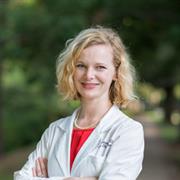
Ellen Eaton, MD, MSPH, FIDSA
Associate Professor
School of Medicine
Department of Medicine
Division of Infectious Diseases
Chao He, MD, PhD
Assistant Professor
School of Medicine
Department of Medicine
Division of Pulmonary, Allergy and Critical Care Medicine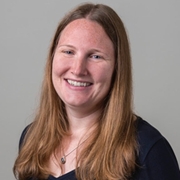
Emily Johnston, MD, MS
Assistant Professor
School of Medicine
Department of Pediatrics
Division of Pediatric Hematology/Oncology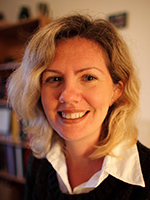
Yulia Khodneva, MD, PhD
Assistant Professor
School of Medicine
Department of Medicine
Division of Preventive Medicine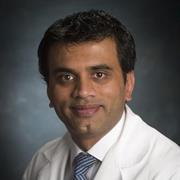
Arora Pankaj, MD, FAHA, FASE
Associate Professor
School of Medicine
Department of Medicine
Division of Cardiovascular Disease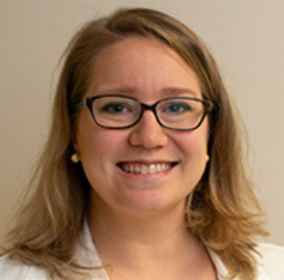
Olivia Van Gerwen, MD
Assistant Professor
School of Medicine
Department of Medicine
Division of Infectious Diseases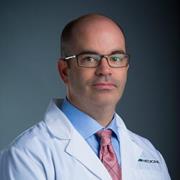
Grant Williams, MD, MSPH
Assistant Professor
School of Medicine
Department of Medicine
Division of Hematology/Oncology
-
Awardees from Heersink School of Medicine